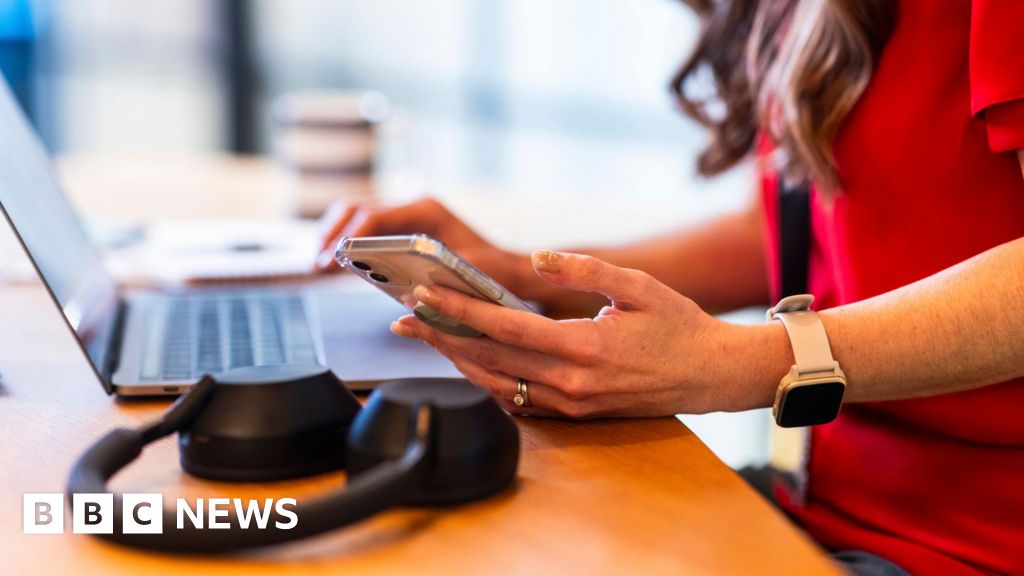- Trends
What the heck is a Labubu and why are kids obsessed?
时间:2010-12-5 17:23:32 作者:India 来源:Life 查看: 评论:0内容摘要:Glenda Young, who wrote a crime series set in a hotel in Scarborough, will give a talk in Withernsea and Yorkshire thriller writers Barry Rainford and Jason Monaghan are also attending events.Glenda Young, who wrote a crime series set in a hotel in Scarborough, will give a talk in Withernsea and Yorkshire thriller writers Barry Rainford and Jason Monaghan are also attending events.
It said its officers were committed to attending and investigating burglaries and urged the public to continue reporting them.The charity Crimestoppers recommends taking the following steps to protect your property from burglars.

A woman who was sexually assaulted by a friend after a night out has described the devastating impact the attack had on her life.Bryony Piggin, 20, waived her right to anonymity and told the BBC she felt "betrayed" by her former best friend.She spoke out after Stefan Nikolic, 20, of Coast Road, Bacton, in Norfolk, was found guilty of assault by penetration.

On Friday, Recorder Simon Levene sentenced him to two years in prison, suspended for 24 months, and told him he had "misread" the situation.Describing her friendship with Nikolic before the attack, Ms Piggin said: "We were inseparable."

The pair had been on a night out with friends in Norwich when the assault happened in April 2023.
The court heard that she had agreed Nikolic could stay at her home in the city, but when she woke up, he was assaulting her."We don't actually understand very well the way in which LLMs work internally, and that is some cause for concern," he tells the BBC.
According to Prof Shanahan, it's important for tech firms to get a proper understanding of the systems they're building – and researchers are looking at that as a matter of urgency."We are in a strange position of building these extremely complex things, where we don't have a good theory of exactly how they achieve the remarkable things they are achieving," he says. "So having a better understanding of how they work will enable us to steer them in the direction we want and to ensure that they are safe."
The prevailing view in the tech sector is that LLMs are not currently conscious in the way we experience the world, and probably not in any way at all. But that is something that the married couple Profs Lenore and Manuel Blum, both emeritus professors at Carnegie Mellon University in Pittsburgh, Pennsylvania, believe will change, possibly quite soon.According to the Blums, that could happen as AI and LLMs have more live sensory inputs from the real world, such as vision and touch, by connecting cameras and haptic sensors (related to touch) to AI systems. They are developing a computer model that constructs its own internal language called Brainish to enable this additional sensory data to be processed, attempting to replicate the processes that go on in the brain.
- 最近更新
- 2025-07-07 07:36:33Q&A: Cillian Murphy on following ‘Oppenheimer’ with the Irish drama ‘Small Things Like These’
- 2025-07-07 07:36:33'Sex and The City' Star Transforms Into a Literal ‘Work of Art’ In Cheeky New Photo
- 2025-07-07 07:36:33McDonald’s Snack Wrap is officially returning. Here’s when.
- 2025-07-07 07:36:33Higher metals tariffs kick in as deadline for 'best' offers arrives
- 2025-07-07 07:36:33'Biohacker' reveals how life past 150 years will soon be 'inevitable' with data-driven health changes
- 2025-07-07 07:36:33Oceans' ability to absorb carbon dioxide could be key in fighting global warming
- 2025-07-07 07:36:33Climate Questions: What's going on with climate change?
- 2025-07-07 07:36:33US heatwave: How does heat kill? It shuts down the brain, body
- 热门排行
- 2025-07-07 07:36:33Interest from bonds and bond funds
- 2025-07-07 07:36:33Takeaways from AP's report on Greenlanders resisting Trump's talk of acquiring their homeland
- 2025-07-07 07:36:33Moving to a new neighborhood or state
- 2025-07-07 07:36:33This Brilliant Hack Is Perfect for Small Patios, Gardens, and Apartments
- 2025-07-07 07:36:33Video shows Air India plane crashing in Ahmedabad
- 2025-07-07 07:36:33This Rolling Kitchen Island Is 61% Off — and It Adds Instant Storage
- 2025-07-07 07:36:33AOLThe 44 best early Prime Day deals this weekend
- 2025-07-07 07:36:33McDonald's Snack Wrap is returning to U.S. menus. Here's what to know.
- 友情链接
- Iran passes bill to halt IAEA cooperation as fragile Israel ceasefire holds Iran passes bill to halt IAEA cooperation as fragile Israel ceasefire holds Who is Zohran Mamdani, New York’s likely next mayor? Thatcher’s legacy endures in Labour’s industrial strategy Did the US and Israel really obliterate Iran’s nuclear facilities? When we avoid our own and others’ anger, we miss a chance to improve everyone’s working life 15 summer desserts so good that you’ll forget about the heat wave Russia no longer needs Iran’s help to sustain the war in Ukraine Can Iran really shut down the Strait of Hormuz? Trump declares ‘victory for everybody’ despite doubts over US strikes Can Iran really shut down the Strait of Hormuz? Legendary Dodgers announcer Jaime Jarrín speaks out on immigration raids Tesla’s European sales fall for fifth consecutive month Trump says US will speak to Iran next week and ‘may’ sign a nuclear deal Are airlines stopping flights to Middle East amid soaring tensions? ParentsWhat the heck is a Labubu and why are kids obsessed? All to know ahead of the Topuria-Oliveira blockbuster bout at UFC 317 Which teams can claim the last four knockout spots at the Club World Cup? The myth of Iran’s invincibility has been broken, and the fallout could be far-reachi… Photos: Young Palestinians in Gaza turn plastic into fuel Mamdani’s stunning victory marks the rise of a new American Left ABC NewsDemocratic lawmaker arraigned on charges of assaulting federal officers Iran passes bill to halt IAEA cooperation as fragile Israel ceasefire holds Associated PressFlutes for Fido: Volunteers play music to soothe shelter animals In Gaza, “illusion of humanitarianism” is new phase in genocide Israel (& the US) vs Iran – what just happened? | Start Here Q&A One more sizzling hot day for the eastern US before temperatures plunge 30 degrees Iran attacks US air base in Qatar: What we know so far Can Iran really shut down the Strait of Hormuz? All to know ahead of the Topuria-Oliveira blockbuster bout at UFC 317
